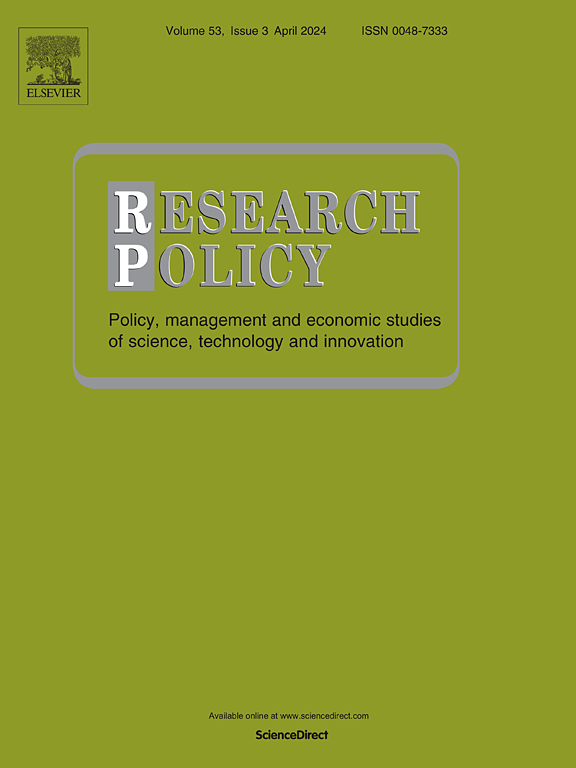Institutionalizing social entrepreneurship in the Global South: How intermediaries work around the indigenous solidarity economy in Colombia
IF 8
1区 管理学
Q1 MANAGEMENT
引用次数: 0
Abstract
Existing research on sustainability transitions has primarily focused on technological change within national innovation systems, often overlooking social change and global interdependencies. This study examines the emergence of social entrepreneurship as a global sustainability niche that offers an alternative institutional rationality to the prevailing commercial entrepreneurship regime. We introduce a framework that depicts how sustainability transitions unfold across regional subsystems, where intermediaries connecting the Global North and South facilitate niche transfer through institution-building initiatives. Applying the framework to Colombia, we examine how intermediaries from the Global North shape the institutionalization of social entrepreneurship in the Global South along regulative, cognitive, and normative domains. The results reveal how an inchoate institutional environment enables well-resourced Northern intermediaries to play an outsized role in shaping local institutions. Power asymmetries and limited downward accountability reduce the reflexivity of intermediaries leading institutionalization processes, creating tensions with the country's indigenous solidarity economy organizations. The study contributes to the literature on sustainability transitions by unravelling the promises and challenges of foreign-led institutionalization of sustainability niches in the Global South.
全球南方社会企业的制度化:中介机构如何围绕哥伦比亚的土著团结经济运作
关于可持续性过渡的现有研究主要集中在国家创新系统内的技术变革,往往忽视了社会变革和全球相互依存关系。本研究考察了社会企业家精神作为全球可持续性利基的出现,为现行的商业企业家制度提供了另一种制度合理性。我们引入了一个框架,描述了可持续性转型如何在区域子系统中展开,其中连接全球北方和南方的中介机构通过制度建设倡议促进利基转移。将这一框架应用于哥伦比亚,我们研究了来自全球北方的中介机构如何在监管、认知和规范领域塑造全球南方的社会创业制度化。研究结果揭示了不成熟的制度环境如何使资源充足的北方中介机构在塑造当地制度方面发挥巨大作用。权力不对称和有限的向下问责制降低了领导制度化进程的中介机构的反身性,造成了与该国土著团结经济组织的紧张关系。该研究通过揭示外国主导的可持续发展利基制度化在全球南方的承诺和挑战,为可持续发展转型的文献做出了贡献。
本文章由计算机程序翻译,如有差异,请以英文原文为准。
求助全文
约1分钟内获得全文
求助全文
来源期刊

Research Policy
MANAGEMENT-
CiteScore
12.80
自引率
6.90%
发文量
182
期刊介绍:
Research Policy (RP) articles explore the interaction between innovation, technology, or research, and economic, social, political, and organizational processes, both empirically and theoretically. All RP papers are expected to provide insights with implications for policy or management.
Research Policy (RP) is a multidisciplinary journal focused on analyzing, understanding, and effectively addressing the challenges posed by innovation, technology, R&D, and science. This includes activities related to knowledge creation, diffusion, acquisition, and exploitation in the form of new or improved products, processes, or services, across economic, policy, management, organizational, and environmental dimensions.
 求助内容:
求助内容: 应助结果提醒方式:
应助结果提醒方式:


